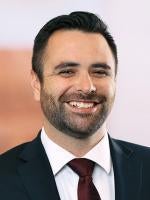The Tax Cuts and Jobs Act (the “Act”), signed into law on December 22, 2017, significantly increased the exemption amounts for the federal estate, gift, and generation-skipping transfer taxes. These increases may present planning opportunities for individuals and families.
Under previous law, an individual could make combined transfers, in life and at death, of up to $5,000,000 (indexed to inflation; the 2017 inflation-adjusted limit was $5,490,000) without paying gift or estate taxes. The Act doubled this exemption amount for years 2018 through 2025. Accordingly, in 2018, an individual may transfer up to $11,180,000 ($22,360,000 for married couples) in combined life and death transfers without paying federal estate and gift taxes. The Act concurrently increased the exemption from the generation-skipping transfer tax (the “GST”), which is a tax imposed on transfers of assets to grandchildren and further generations.
The exemptions discussed above will continue to increase with inflation, albeit at a slower rate than under previous law. Beginning in 2026, the exemptions will revert to $5,000,000 per individual, adjusted for inflation.
The maximum estate and gift tax rate remains at 40 percent. The gift tax annual exclusion for gifts increased from $14,000 in 2017 to $15,000 in 2018 and will continue to be indexed to inflation. The gift tax annual exclusion for gifts to a non-citizen spouse is approximately $152,000 in 2018. The estates of nonresident noncitizen decedents will continue to be limited to a $60,000 exemption on U.S. situs assets.
Planning Opportunities
Clients who had previously exhausted their lifetime exemptions may now wish to make additional gifts of approximately $5,000,000 ($10,000,000 per married couple). This may mean transferring assets to an existing irrevocable trust, creating a new trust, or forgiving indebtedness from an installment sale to a trust. This may also be a good time to review core estate planning documents, especially for estate plans that specifically contemplate bequests based on estate or GST tax exemptions.
A donor may recognize several benefits to using his or her gift and GST tax exemptions to make a large lifetime gift now, rather than waiting until death:
-
Post-gift appreciation on gifted assets is removed from the taxable estate.
-
Lifetime gifts are especially useful in saving state estate taxes in states that impose an estate tax but not a gift tax (such as Massachusetts and New York).
-
Making gifts in trust, rather than outright to individual beneficiaries, allows for separation of the timing of the gift (often driven by tax motivations) from the timing of the distributions (driven by family and financial factors). In addition, using a trust can provide income and GST tax benefits, as well as creditor protection benefits. If desired, the terms of the trust can give beneficiaries significant (although not total) control consistent with enhancing tax and creditor protection goals.
There are, however, potential drawbacks to making large lifetime gifts now:
-
While the minimization of transfer taxes (gift, estate, and GST) is one goal of lifetime gift planning, it is important to understand and manage the income tax implications of such planning. For income tax purposes, assets held at death receive a “stepped-up” basis equal to fair market value. In contrast, donees receiving gifted property take the donor’s “carryover basis,” and would pay income taxes on the difference between the sale price and the donor’s basis upon subsequent disposition of the assets. In some cases, it may be desirable to continue to own low-basis assets until death, receive a step-up in basis at death, and permanently avoid income taxes on the assets’ appreciation.
-
Gifted assets may decrease in value, resulting in a waste of a portion of the donor’s exemption.
-
The assets may be needed at some point in the future.
Absent further changes from Congress, the increase in exemption will sunset at the end of 2025, meaning that donors today may transfer tax-free almost double what will be possible in 2026. While there may be some concern that current gift tax savings will be “clawed back” by the estate tax after 2026, the Act provides that the Treasury may issue regulations to address this issue.








 />i
/>i

